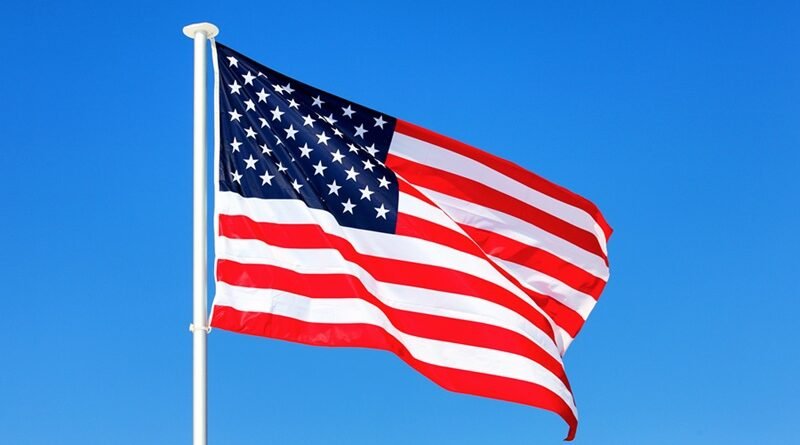Patriot’s Day 2025: The History Behind the Battles of Lexington and Concord
Observed on the third Monday of April, Patriot’s Day commemorates the beginning of the American Revolutionary War and honors the brave individuals who fought in the battles of Lexington and Concord. In 2025, Patriot’s Day will be observed on Monday, April 21. This state holiday is particularly significant in Massachusetts and Maine and is marked by parades, reenactments, and a spirit of remembrance.
Patriot’s Day 2025 will be officially observed on Monday, April 21, though the actual anniversary of the Battles of Lexington and Concord falls on Saturday, April 19.
In this article, we explore the history, significance, and legacy of the battles of Lexington and Concord, which ignited the Revolutionary War and marked the birth of a nation.
What Is Patriot’s Day?
Patriot’s Day is a state holiday primarily celebrated in Massachusetts, Maine, and Wisconsin (to a limited extent). It is not a federal holiday, but its importance resonates through the broader American historical narrative.
Originally declared in 1894 by the Massachusetts legislature, Patriot’s Day was created to replace the local observance of Fast Day. The aim was to honor the men and women who fought in the first battles of the American Revolutionary War on April 19, 1775.
Since 1969, the holiday has been observed on the third Monday in April, aligning it with a long weekend and making it part of the broader April school vacation week in Massachusetts.
Historical Background: Tensions Before the Battles
Colonial Discontent with British Rule
In the years leading up to 1775, the American colonies were growing increasingly discontent with British policies. Parliament had imposed various taxes and regulations through the Stamp Act (1765), Townshend Acts (1767), and Tea Act (1773)—all without giving the colonies any form of political representation. This gave rise to the rallying cry: “No taxation without representation.”
The Formation of Militias
In response to British aggression and tyranny, local militias—often composed of regular townspeople—began to train and organize themselves as “Minutemen,” ready to defend their communities at a moment’s notice.
The situation reached a boiling point by early 1775. British General Thomas Gage, the military governor of Massachusetts, received orders to disarm the colonial militias and arrest key leaders like John Hancock and Samuel Adams.
The Night Before: Paul Revere’s Famous Ride
On the night of April 18, 1775, British troops began marching from Boston to Concord to seize a cache of colonial weapons. That same night, American patriots including Paul Revere, William Dawes, and Samuel Prescott set out on horseback to warn the countryside that “The British are coming!”
Revere’s ride, immortalized by Henry Wadsworth Longfellow’s poem, became a symbol of American resistance. Though Revere was captured before reaching Concord, his warning allowed the militias to mobilize in time.
The Battles of Lexington and Concord: April 19, 1775
The Battle of Lexington
At around 5:00 a.m. on April 19, about 700 British regulars reached Lexington Green, where they encountered 77 colonial militiamen.
Though the Americans were ordered to disperse, a shot rang out—“the shot heard ‘round the world”—and chaos ensued. Within moments, eight colonists lay dead, and the British continued marching toward Concord.
Historians are still uncertain who fired the first shot, but it marked the beginning of open conflict between Britain and its American colonies.
The Battle of Concord
By the time the British reached Concord, the colonial militias had grown in size and organization. At North Bridge, the Minutemen pushed back the British forces, forcing a retreat back toward Boston.
As the Redcoats marched back, they were subjected to continuous guerrilla attacks from the militias hidden behind trees, fences, and stone walls. This type of fighting, unfamiliar to the British, caused significant casualties.
By day’s end, the British had suffered over 250 casualties, while the Americans had less than 100. It was a clear message: the colonies would not submit quietly.
Why Patriot’s Day Matters
The Beginning of the American Revolution
The battles of Lexington and Concord were not just military skirmishes—they were symbolic acts of defiance. They marked the beginning of the Revolutionary War and, eventually, the birth of the United States of America.
A Celebration of Courage and Resistance
Patriot’s Day is a tribute to those ordinary farmers, blacksmiths, and merchants who stood up to one of the world’s most powerful empires. Their bravery continues to inspire Americans today in the fight for freedom, democracy, and justice.
Modern Observances of Patriot’s Day
Reenactments and Parades
Each year, historical reenactments of the battles are held in Lexington and Concord. Participants dress in colonial-era clothing, carry muskets, and recreate the pivotal scenes from that fateful day.
Boston Marathon
Patriot’s Day is also famous for hosting the Boston Marathon, the world’s oldest annual marathon, first held in 1897. Thousands of runners from around the world participate, making it a celebration of endurance and community.
Educational Programs
Schools, museums, and historical societies use this day to educate younger generations about the American Revolution, its causes, and its enduring relevance.
Patriot’s Day 2025: What to Expect
In 2025, Patriot’s Day will be observed on Monday, April 21. Here’s what to expect:
- Lexington Battle Reenactment: At dawn, on the Lexington Green.
- Concord Commemorative Events: Including North Bridge ceremonies and guided tours.
- Boston Marathon 2025: With tens of thousands of runners and spectators.
- Patriotic Parades and Ceremonies: Across Massachusetts and parts of Maine.
- Educational Outreach: History lessons, documentaries, and museum events.
Final Thoughts
Patriot’s Day is more than just a historical holiday—it is a living legacy of America’s foundational values of liberty, resistance to tyranny, and the right to self-governance. The events at Lexington and Concord in 1775 demonstrate that a few brave individuals can spark a revolution that changes the world.
As we mark Patriot’s Day 2025, let us remember the sacrifices of those who dared to stand against oppression and paved the way for generations of freedom.

